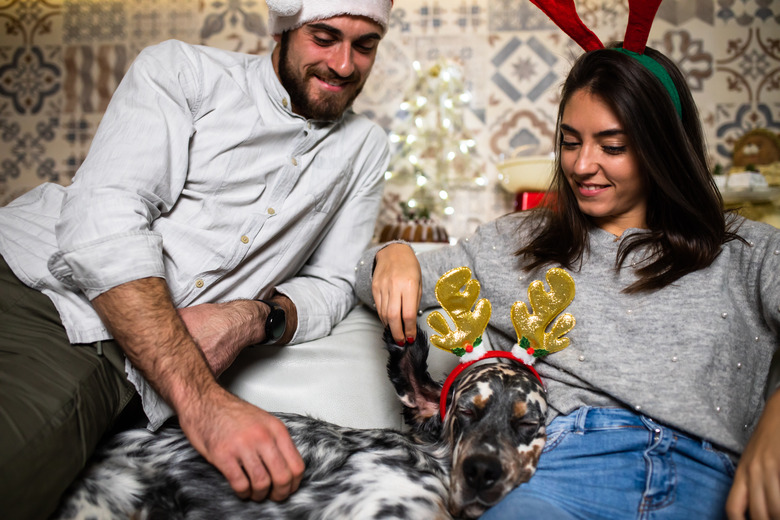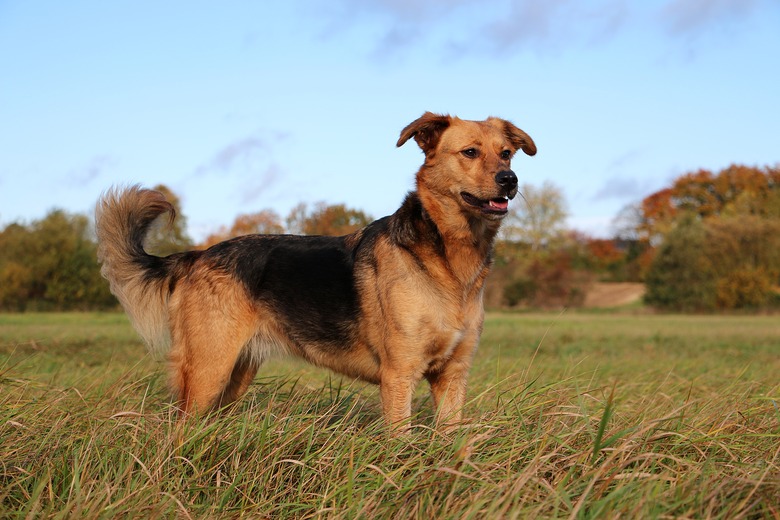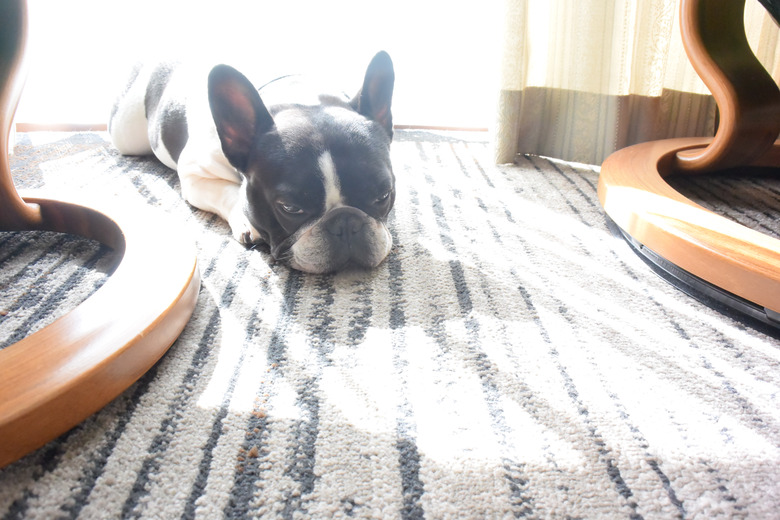Why Do Dogs Grunt When You Pet Them?
What is your dog saying when they grunt as you pet them? Dog owners often wonder if it means that their dogs are happy, or if their pets are actually trying to get their owners to stop. Dog sounds can cover a lot of ground, from grunts, growls, whines, and howls, either when they are relaxing, when you pet them or try to move them—or really, for just about any occasion. Unless there are other warning signs with these vocalizations, grunting is usually no cause for alarm.
Dog body language
Dog body language
Groaning, moaning, grunting, and other vocalizations are often typical dog body language signals. When your dog is pacing while looking for the perfect place to poo, or scratching their beds to make the beds just so, they may often emit grunting or snorting sounds. Just as humans sometimes sigh when they finally relax at the end of a long day, your dog may be making an audible sound simply to indicate that they are experiencing pleasure.
Purina reports that dog body language may include a low rumbling sound that's not exactly a growl, but also not exactly a bark. It's usually clear in this situation that your pet is happy. It should be clearly non-aggressive. In this case, it's a sign that means "don't stop!"
However, some medical conditions could cause dog sounds like grunting and other uncomfortable body language when you pet your dog, according to Dogster. If your dog has arthritis, for instance, they may grunt when you pet them because basic movements are painful and your dog's joints hurt.
Snorting and grunting vocalizations
Snorting and grunting vocalizations
Some snorting and grunting vocalizations are common with certain types of brachycephalic dogs, i.e., dog breeds that are short-nosed or flat-faced such as bulldogs, pugs, some spaniels, Shih Tzus, and boxers which commonly have breathing problems. Blue Cross explains that flat-faced dogs such as bulldogs and pugs have shorter nasal passages and smaller airways in general, so inhaling is more difficult. Nostrils are just one way that dogs take in oxygen; they can also take in oxygen through their mouth.
For dog owners with flat-faced dogs, it is a good idea get familiar your dog's grunting. Know their normal breathing patterns, so you will notice if something changes. When you hear your dog grunting or snorting when you pet them, it could just be that they are trying to breathe a little better. Petting a dog also could simply make them happy, which generally causes more vocalizations, movement, and breathing activity.
Wag Walking reports that grunting is one of the most common vocalizations. It's generally understood to be an expression of contentment. Dogs grunt when they are relaxed, when they are being petted or hugged, or when their human finally sits down on the couch next to them. While flat-faced dogs typically grunt more often than other dogs, grunting is a common thing that all dogs do.
In conclusion
In conclusion
A dog doesn't use words to use to communicate feelings and intention. And they don't need words because they can use their whole body, from the tips of their ears to the tip of their tail to communicate through expressive and effective body language. Each of the common dog sounds and movements convey a lot of information, both to their humans and to other dogs. Grunting is just one of many tools your dog uses to communicate.
Occasionally, grunting can indicate a medical condition, but if there is no medical concern or breathing issue, a dog grunting or snorting when you pet them is nothing to worry about.



